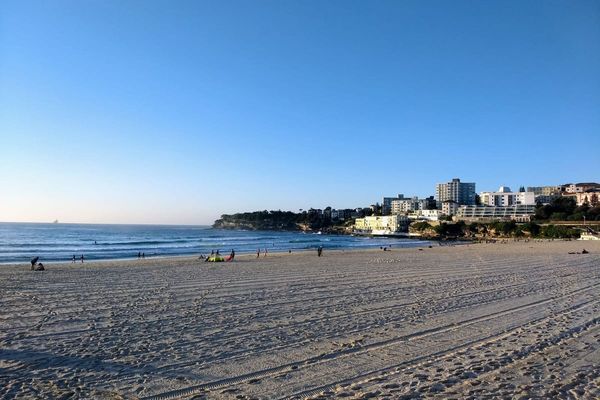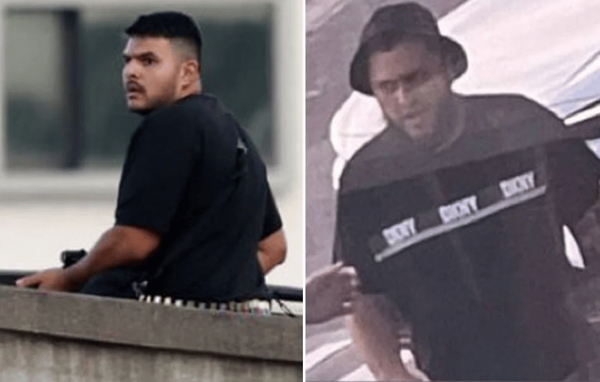
When Ernest Withers died in 2007, he took to the grave a secret that complicated his legacy as the famed photographer of Dr Martin Luther King Jr.
For years, as he captured critical moments in Black American history, Withers worked as an informant for the FBI, oftentimes supplying the photographs he took of the civil rights movement to the very organization set on dismantling it.
No one but Withers himself can say for sure what his motivations were for working with the FBI – why, as a Black man who dedicated his career to documenting and celebrating Black life, he provided information that possibly put those same lives at risk. But in The Picture Taker, a documentary premiering ahead of Black History Month, director Phil Bertelsen and producer Lise Yasui seek to explore that question using what can only be described as Withers’ best defense: his body of work.
Bertelsen had inherited the project from his mentor, St Clair Bourne, who died before Withers’ FBI connections emerged. The film begins and draws on a number of archive interviews with Withers himself, describing his life growing up in Memphis, Tennessee and learning photography while serving in a segregated army during the second world war.
The interviews with Withers provide not just biographical backstory – they show the respect and reverence held for Withers as a chronicler of Black history, before the FBI revelations. In his 60-year photography career, Withers left behind what’s estimated to be more than 1.8m images, documenting everything from first communions, Beale Street, the Emmett Till trial, the Montgomery bus boycott, sharecroppers and BB King.
“He went down so many different paths and was presented to the public as either this hero at the frontlines of the civil rights movement who put himself in really dangerous situations – an African American man in the south with a camera was a really dangerous position to be in during the 50s and 60s,” Yasui said in an interview with the Guardian. “And then when the FBI revelations came out, he was vilified. We really wanted to unpack that because we felt that understanding that period and era that Ernest was brought up in, that context is everything. And you can’t really reduce somebody’s decisions to these either/ors.”
And Yasui and Bertelsen went hard with context, to not only inform but also raise possible reasons behind Withers’ involvement with the FBI. The film touches on Withers becoming one of the first Black police officers hired by the Memphis police department and later, Kathleen Cleaver, a Black Panther activist, questioned if perhaps the FBI had a hold on him from his time as a police officer. A former FBI agent talked about the fear of communism during that time period so that others could ponder if Withers joined with the FBI because he wanted the civil rights movement to thrive and sought to drive out any purported communists who might weaken their mission. Marc Perrusquia, the journalist formerly of the Commercial Appeal who broke the story about Withers’ FBI connections, spoke about how Withers received about $20,000 from the FBI, the equivalent of about $170,000 today, while Rosetta Miller-Perry, a former representative of the US Civil Rights Commission, noted that someone also had to have footed the bill for a poor photographer like Withers to travel around the country to document the movement.
“You have to always remember the backdrop of segregation and how it worked. You didn’t tell white people no. You did things that you felt would increase your ability to survive because you wanted to have white connections,” activist John B Smith said in the documentary, adding another possibility to the mix.
The film-makers never sugarcoat Withers’ work with the FBI, at one point suggesting that all the FBI informants at the time bore some responsibility for King’s assassination. While James Earl Ray was arrested and convicted as the gunman in King’s murder, King’s family and others within the civil rights movement maintain that there were other forces at work in a conspiracy to remove King from the public sphere. “You take it as part of the collective intelligence gathering that was going on – was he aware? Did he intend for any of that information to be used against Dr King? I doubt that very seriously,” Bertelsen said in an interview. “But I think it is safe to say that his informing probably had a negative impact.”

But interspersed throughout the documentary are the photos that Withers himself took – between 300 and 500 of Withers’ photographs total, a mere fraction of his entire body of work, Bertelsen said.
In the 15 years since work began on the documentary, two books and a podcast had come out about Withers’ life and involvement with the FBI. But what Bertelsen realized a documentary could do that those other mediums could not, was allow Withers to mount his own defense from beyond the grave, through the images he took throughout his life.
Because even with his involvement with the FBI, no one can take away the sheer volume of the Black history and life that he captured on film. “And you can’t take that away from the community that he lived in and served, during a period where there were a few people like him taking images of our lives,” Bertelsen said. “It’s an archive, it’s a legacy, that is really remarkable and unparalleled.”
Few in the documentary take a strong stance against Withers. “Most people in and around Memphis knew about these revelations, and weren’t really willing to throw him under the bus,” Bertelsen said. “That was a surprise to us, and it showed that they had themselves a very nuanced understanding of that history and that period and that man.”
Both Bertelsen and Yasui hope viewers will take away from the documentary that same nuance in going forth in a complicated world where too many see only in black or white.
“Over the years, I woke up some mornings just loving Ernest and being enamored by the images he took, knowing that no one else took them with the same compassion and insight that he did,” Bertelsen said. “And then other mornings, I’d wake up just despising the man for undercutting the movement and compromising people’s lives. So it was never an either/or proposition for me. It was always both. In that light, I hoped to tell a story that reflected something more than just a hero or heretic question. At different times, Ernest was both of those things.”
The Picture Taker airs on PBS on 30 January with a UK date to be announced







